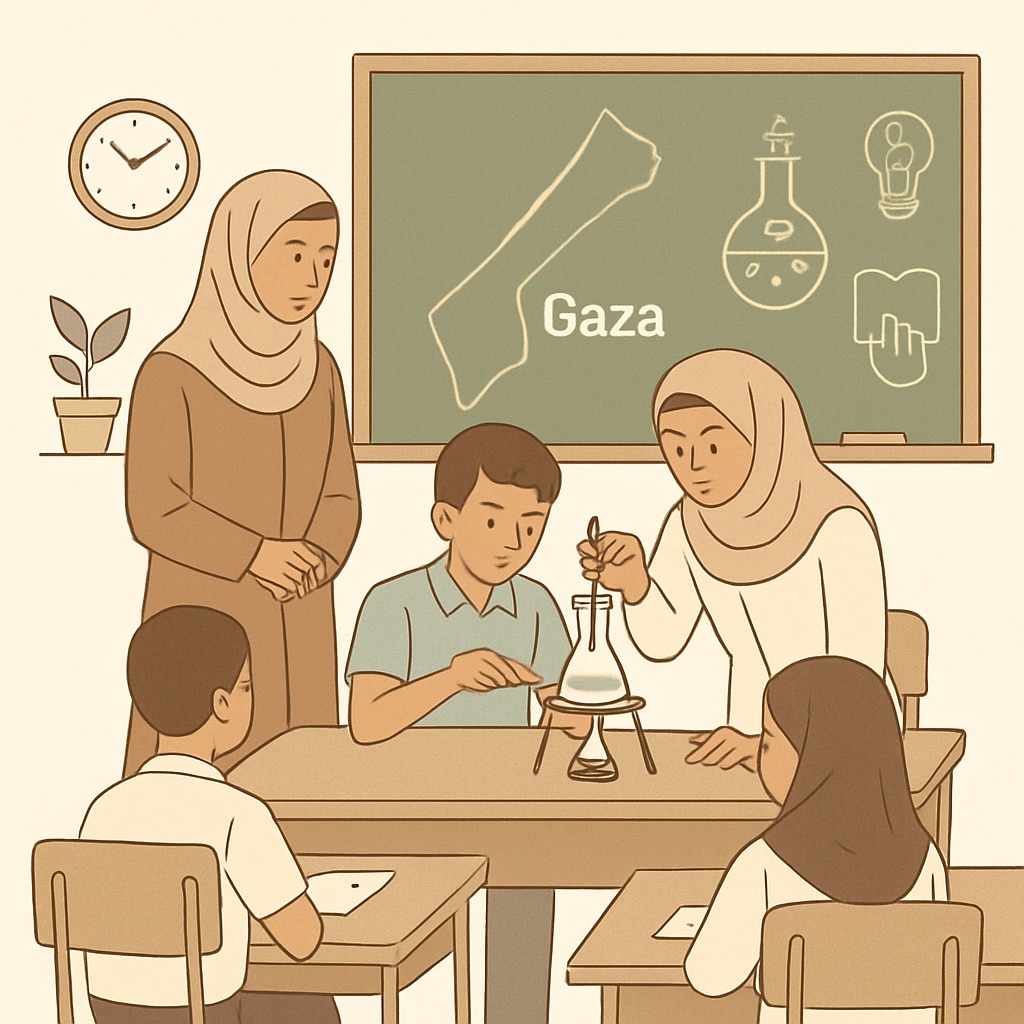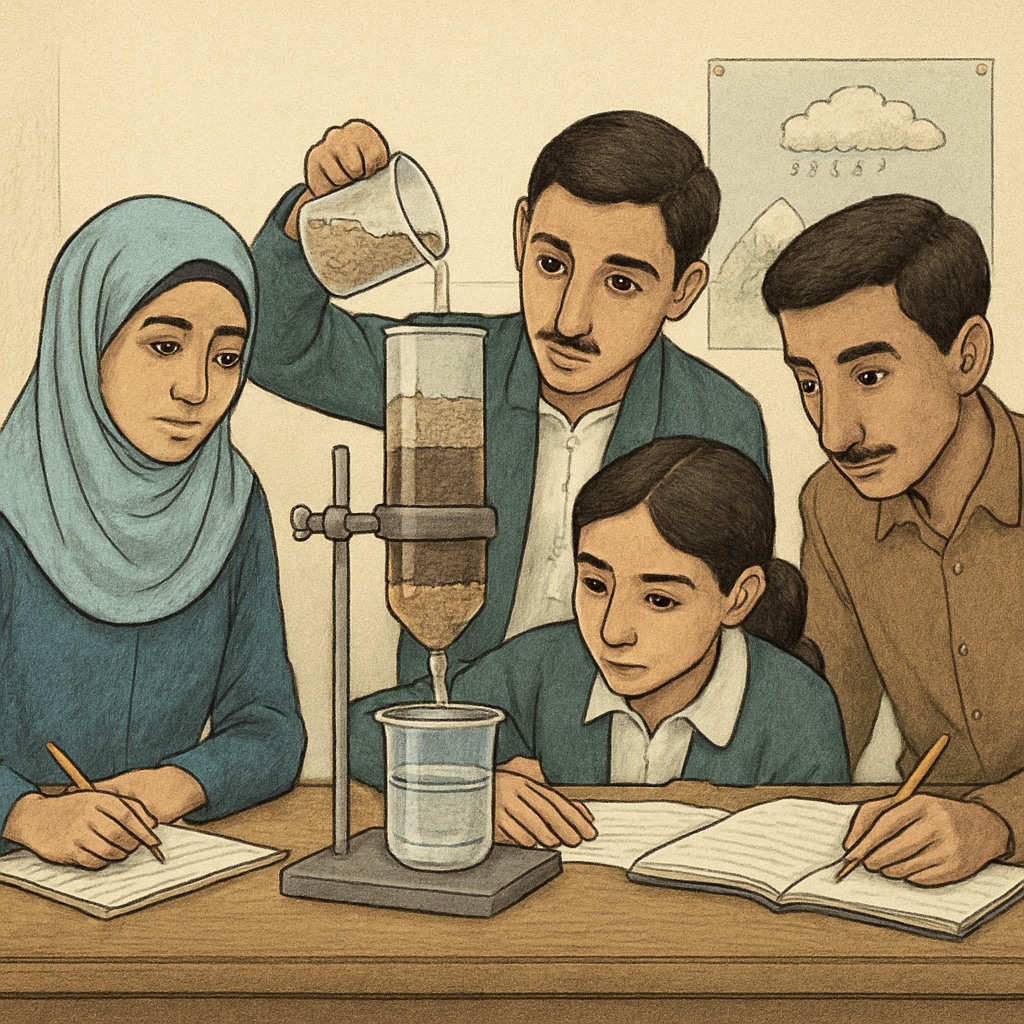The development of a robust teaching framework, including a science and social studies curriculum, is vital for rebuilding hope in post-conflict areas like Gaza. Education not only nurtures knowledge and skills but also serves as a foundation for peace and stability. By tailoring teaching materials to the unique needs of Gaza’s public schools, we can lay the groundwork for a brighter and more resilient future.
The Role of Education in Post-Conflict Recovery
Education plays a crucial role in post-conflict recovery by offering a sense of normalcy, fostering critical thinking, and promoting social cohesion. For regions like Gaza, where schools have been disrupted by ongoing conflict, the reconstruction of the education system is as essential as rebuilding physical infrastructure. According to Britannica, education in crisis zones can empower individuals, reduce societal tensions, and contribute to long-term development.
In this context, science and social studies are particularly important. Science education equips students with problem-solving skills and an understanding of the natural world. Social studies, on the other hand, encourage civic engagement and empathy, helping students grasp the importance of community and cooperation.

Designing a Science Curriculum for Gaza Schools
Developing a science curriculum for Gaza schools involves addressing several key challenges, including limited resources, cultural relevance, and the need for hands-on learning opportunities. The curriculum should be designed to:
- Introduce basic scientific concepts in physics, biology, and chemistry.
- Incorporate local environmental issues to make lessons relevant and practical.
- Utilize affordable, easily accessible materials for experiments and activities.
For example, students could study water purification methods to address Gaza’s water scarcity issues. Such lessons not only teach valuable scientific principles but also encourage students to think critically about solutions to real-world problems.

Building a Social Studies Curriculum to Promote Peace
Social studies curricula for Gaza schools should emphasize topics that foster understanding, tolerance, and collaboration. Key elements might include:
- Lessons on conflict resolution and peacebuilding.
- A focus on local and global history to provide context and perspective.
- Activities that encourage community involvement, such as group projects or service initiatives.
By teaching students about the interconnectedness of societies and the importance of dialogue, social studies can help lay the groundwork for a more harmonious future. Resources like the Wikipedia page on social studies provide valuable insights into how these subjects can be adapted to different educational contexts.
Additionally, storytelling and role-playing activities can be used to teach empathy and understanding. For instance, students might reenact historical events or simulate peace negotiations, encouraging them to consider multiple perspectives.
Overcoming Challenges in Curriculum Development
While the benefits of education in post-conflict areas are clear, the process of developing and implementing curricula in Gaza comes with significant challenges. Limited funding, damaged infrastructure, and a shortage of qualified teachers are among the primary obstacles. To address these issues, international organizations and local stakeholders must work together to provide resources, teacher training, and ongoing support.
Moreover, the curriculum must be adaptable to the realities of Gaza’s schools. Digital tools, for example, could play a role in overcoming the lack of physical teaching materials. Free online platforms offering science and social studies content could supplement classroom instruction, ensuring that students have access to quality education regardless of resource limitations.
Conclusion: A Path Forward
Rebuilding the education system in Gaza requires a multifaceted approach that prioritizes the development of science and social studies curricula. By focusing on these subjects, educators can equip students with the knowledge, skills, and values necessary to foster resilience and promote peace. While challenges remain, the collaborative efforts of local communities, educators, and international organizations can pave the way for a brighter future for Gaza’s youth.
In the words of Nelson Mandela, “Education is the most powerful weapon which you can use to change the world.” By investing in the education of Gaza’s children, we are not just rebuilding schools—we are rebuilding hope.
Readability guidance: Short paragraphs and lists are used to enhance clarity. Transition words such as “for example,” “in addition,” and “as a result” are included to ensure smooth flow. The use of active voice and concise sentences ensures accessibility for readers.


